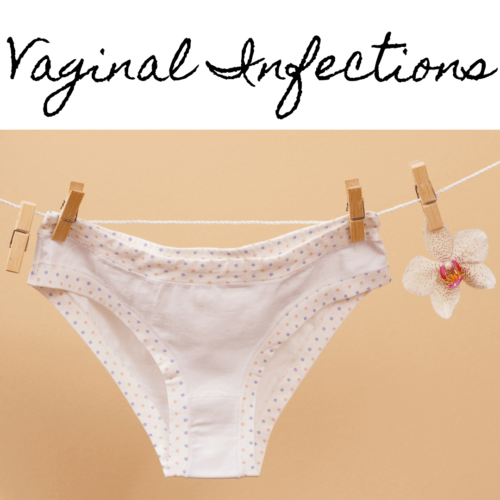
Dsr. Nicole Sundene
Holistic Women's Health Specialist
"What can I use naturally at home to treat a yeast infection without taking medicine? Is it normal to have constant yeast infections?"
~Claire C Scottsdale, AZ
Women with chronic yeast infections need to look at the "Root Cause" or the why behind having constant yeast infections. While it is normal to occasionally have 1-2 yeast infections per year, anything more than that indicates there may be something off with hormones and nutrition. When women come to me complaining of constant yeast infections, especially ones that happen each month around their cycle, we need to test hormones, nutrition, and microbiome.
HOME TREATMENT FOR YEAST INFECTION
Yeast infections for women can easily be treated at home and don't always require a visit to their Naturopathic Doctor unless the symptoms are ongoing. Then we must get together to discover the root cause. Vaginal infections such as yeast infection, bacterial vaginitis, dryness, and chronic recurrent bladder infections are very common at times that women are suffering from hormone imbalance during menopause, perimenopause, and PMS. Menopausal changes to the vaginal mucous, change in pH, and loss of mucous production triggered by estrogen are behind vaginal dryness. These changes directly impact the urethra and surrounding area and can cause a host of recurrent vaginal issues. Additionally, hormonal conditions such as Hypothyroidism and Hashimoto's Thyroiditis can also cause the skin and mucous membranes to dry are also behind recurrent vaginitis and UTI's.
Vaginal infections have numerous causes. Many women experience a vaginal discharge, and in many cases it is normal and may vary with the menses cycle or pregnancy. If there is a change in the discharge, irritation, burning, itching or inflammation, then you should see your physician. Some women experience cyclical infections, often depending on their stress level or menstrual cycle. Other potential irritants are water, tampons, spermicides, latex and speculums, to name a few.
The frequency and severity of infections can be greatly reduced by education, examination, and application of Natural Medicines while also addressing the Root Cause. Never be embarrassed to speak with your Naturopathic Doctor about these frustrating Female Health problems because we are simply "Auto mechanics for Women" to some degree. We want to tune your system up so you no longer have these problems and must work together to discover the Root Cause.
The following are the most common organisms involved with vaginal infections: Candida albicans (yeast), Gardnerella (bacterial vaginosis), and Trichomonas. These organisms respond to different treatments and so it is important to see your doctor to identify which organism is causing the infection and treat it appropriately. The following are general guidelines to prevent and treat vaginal infections.
PREVENTION
Hygiene:
• Wear cotton underpants. Avoid nylon underwear since they retain moisture and heat which encourages the growth of bacterial and yeast.
• Don’t share washcloths, towels, or bathing suits with others and avoid use of wet or damp towels.
• After urination and bowel movements, wipe front to back to avoid anal-vaginal contamination.
• Avoid chemicals in your personal hygiene regimen (e.g., harsh soaps, perfumes, commercial douches, scented tampons, vaginal sprays, perfumed or colored toilet paper, bubble bath, etc.).
• Don’t douche, especially with commercial douches. Douching has been associated with an increased incidence of pelvic inflammatory disease (PID).
• After bathing, pat genital area dry and keep dry.
• Take showers instead of baths. Soaps can more easily get into the vagina with baths. The pH of soap and bubble baths are alkaline and the vaginal pH is normally acidic. If you take baths, add a cup of white or apple cider vinegar to the water to maintain the acidity.
• Use tampons only during your menses and avoid leaving tampons in the vagina for long periods of time. Tampons left in the vagina encourage the growth of bacteria and yeast and predispose to other serious conditions such as toxic shock syndrome. Change tampons frequently (4-6 times per day) or use a menstrual pad instead.
Diet:
• Eat plenty of fresh vegetables and lean proteins. Limit carbs in grains and fruit.
• Avoid sugar, sweets, alcohol, aspartame, artificial sweeteners (except stevia) and refined foods.
• Include ample amounts of vitamins A, B, C, and E in your diet.
• Include plain, nonfat yogurt and/or use an acidophilus product after taking antibiotics to maintain healthy GI tract bacteria.
Lifestyle:
• Avoid pants that are tight in the crotch. Expose your vagina to fresh air whenever possible such as during sleep.
• Make sure your sexual partner is clean or take a shower before and after sex.
• Anal-genital intercourse is cautioned against by current public health agencies due to the increased risk of sexually transmitted disease. Vaginal penetration after anal intercourse without first changing the condom or washing of your partner’s genitals/hands can be a significant source of infection.
• Use condoms or dental dams during intercourse to avoid transmission of infection between you and your partner.
• Make sure you have adequate lubrication for intercourse. Poor lubrication can cause irritation and inflammation which can lead to the growth of bacteria which cause infection.
• Avoid vaginal irritants such as unclean diaphragms and cervical caps, aggressive intercourse, and examining instruments.
• Find ways to deal with emotional stress and get an adequate amount of sleep. This helps keep ones immune system working well to fight off infection.
SELF-TREATMENT OPTIONS
Boric Acid and Acidophilus Capsules: Fill 5-7 “00″ capsules with boric acid (available at any drug store). Insert one boric acid capsule and two acidophilus capsules into the vagina every night for 5-7 nights. Some women find the boric acid is irritating. Discontinue use of capsules should irritation develop. Do not use boric acid if you may be pregnant. Do not use boric acid capsules for more than seven nights in any month without first consulting a physician.
Yogurt: Apply two tablespoons of unsweetened nonfat yogurt with live lactobacillus cultures into your vagina each night for seven days. Consult your physician if you are pregnant before application of yogurt. Optional: Add 5-6 drops of Hydrastis(Goldenseal) tincture to two tablespoons of yogurt.
Diet: Eliminate foods with high yeast, mold, or fungus content during an infection, e.g. mushrooms, cheese, alcohol, sweets, and bread. Follow dietary guidelines as above.
Garlic: Wrap a un-nicked clove of garlic in cheesecloth or gauze and insert in the vagina for seven nights.
Bath: Prepare a bath using one cup of white vinegar and soak for 10-15 minutes to decrease vaginal pH.
Dryness: Keep genital area dry and expose to air often. You may use a blow dryer on cool setting to dry genital area during infection.
Menstrual pads: Use menstrual pads instead of tampons if you have your menses during an infection. If cloth pads use bleach with washing.
If symptoms persist for more than one week, consult your Naturopathic Doctor. While it is considered normal for women to occasionally have yeast infections or bladder infections, be sure to seek out an appointment with your doctor if you have recurrent infections as that is often a symptom that something else is imbalanced with your system that we must address such as diabetes, or immunocompromise.
Thank you for your Women's Health and Herbal Medicine questions. Please send them to me on a postcard to the address below as I love to get something in the mail that is not a bill. Remember if your question cannot fit on a postcard then you need to treat yourself to a Naturopathic visit with me. Simply pop over to my SCHEDULE page to get set up. I love helping women with their female health issues!
Dr. Nicole Sundene, NMD
(480) 837-0900
Dr. Sundene is a Naturopathic Doctor in Scottsdale, Arizona, and is considered a Female Hormone Expert in Women's Health and Bioidentical Hormones. She specializes in Holistic Women's Health for Menopause, Thyroid, Hashimotos, PMS, Perimenopause, Autoimmune, Postpartum Depression, Chronic Fatigue, Holistic Psychiatry, Depression, Anxiety, Chronic Pain, Autoimmunity, Food Sensitivities, Digestion, Dermatology, Acne, Psoriasis, Eczema, and Adrenal Hormonal Conditions. In 1999 she began working for a Hormone Doctor prior to starting Naturopathic Medical School. With over 22 years of experience in both Prescription and Natural women's health and hormones, she presents to women the best-integrated health solutions for their Chronic Disease. She has been an Herbalist for over 27 years and enjoys teaching women how to use herbs to balance their hormones, nutrition and optimize their health. Dr. Sundene relies on blood testing for her hormone metrics. The hormone testing is covered per the patient's insurance plan and conducted at certain points in the woman's menstrual cycle. To learn more about Hormone Testing for Women Visit: Bioidentical Hormones. Follow Dr. Sundene on Instagram, Twitter, and Facebook for more tips on Women's Health, Female Hormones, and Naturopathy!


